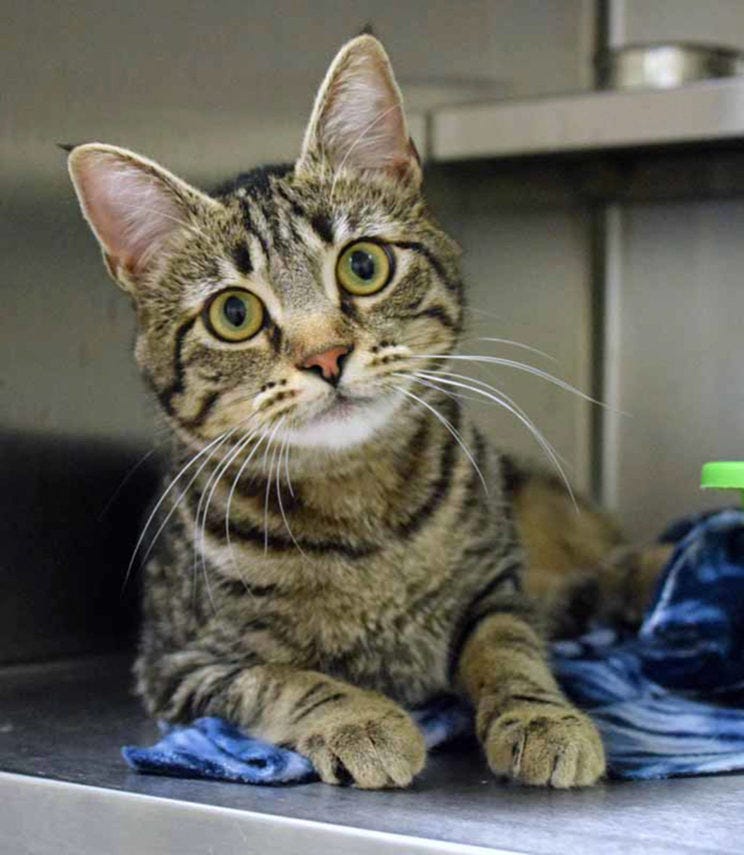Report: 97% nat'l decline in pound killing
News and headlines for March 19 - April 1, 2023

These are some of the stories making headlines in animal protection:
AB 595, Bowie’s Law, would require California shelters to notify rescuers before killing an animal. And given that such notifications are possible through shelter software already used by these facilities or available for free, complying would require nothing more than a stroke on a keyboard.
One click to let the rescuers know that a life needs saving.
AB 595 is such a simple, commonsense law that it is difficult to imagine anyone opposing it. But that is what The California Animal Welfare Association, a lobbying group for the directors of kill shelters like the one who killed Bowie, is doing. Their message?
Bowie’s Law makes them look bad. Better to have dead dogs and cats than let the public know about the animals they intend to kill, even if doing so prevents those animals from losing their lives.
The animals of California, and the people who love them, deserve so much better.
The No Kill Advocacy Center is asking people to help ensure the passage of AB 595 by contacting California’s assembly members and urging them to vote YES on Bowie’s Law.
To add your voice before the April 11 hearing on the bill, click here.
Because one click on a keyboard is all it takes to save a life.
The Spring 2023 issue of No Kill Sheltering is now available for supporters of The No Kill Advocacy Center.
The current issue covers:
Why letting dogs be dogs is critical to saving their lives in shelters;
The rights of shelter animals;
Protecting animals in cruelty cases;
The emotional toll on caregivers of rounding up and killing community cats;
The killing of a little dog named Bowie and what we can do about it;
Increasing dog and cat reclaims;
Why law enforcement underreports animal cruelty cases and how to fix it; and more.
Out of the shadows and into the sun, dogs are no longer stigmatized in Muskegon, MI, because of their appearance.
Restrictions on pit bull ownership, including having to walk them with a muzzle, warning others with a ‘Beware of Dog’ sign and obtaining liability insurance, have been deleted from Muskegon’s dangerous animals ordinance in a move to destigmatize the popular breed.
Targeting dogs based on how they look is immoral. It is also ineffective. That’s not opinion; it’s science:
50% of dogs labeled as pit bulls lacked DNA breed signatures of breeds commonly classified as pit bulls;
Dogs targeted for breed discriminatory laws are not more likely to bite, do not bite harder, and such bans do not result in fewer dog bites or bite-related hospitalization rates; and,
Enforcement of a ban is expensive, with no measurable impact on public safety.
Bans also negatively impact surrounding communities and rescue groups that take on the burden of such regressive and selfish policies to save the lives of these dogs.
After nine years of trying and failing, the Utah legislature finally passed, and the Governor signed a bill to ban use of the gas chamber to kill dogs and cats.
That leaves two states where it is still legal: Wyoming and Missouri. Webster’s dictionary defines euthanasia as “the act or practice of killing or permitting the death of hopelessly sick or injured individuals in a relatively painless way for reasons of mercy.” Unfortunately, in shelters in these (and other) states, animals are not being killed because they are hopelessly sick or injured but out of convenience. For some of them, their lives are taken not in a “relatively painless” way but in one of the most prolonged and excruciating ways: the gas chamber.
When the chamber is filled with poisonous carbon monoxide (or carbon dioxide) gas, the animals inside gasp for breath, feel searing lung pain, and often claw at the chamber door or throw themselves against the sides in a desperate attempt to escape. Fights between animals within a chamber are not uncommon. They urinate and defecate on themselves and each other. They suffer convulsions. And they lose consciousness and brain function only after their vital organs shut down, which can take as long as 30 minutes, causing intense and prolonged suffering before death.
For those who live in Missouri or Wyoming, The No Kill Advocacy Center has model legislation to ban it, a step-by-step guide to getting it passed, and our attorneys stand ready to help.
Coming soon! The Pets Have Value Act: model legislation from The No Kill Advocacy Center.
To get it sent to your inbox, sign up for free by clicking here.
The pet product and service industry, including pet food companies, veterinarians, boarding facilities, and others, are not shy about exploiting what they call “the deep bond humans develop with their pets” when people write checks to them.






